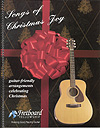- |
User Links
93
Go, Tell It on the Mountain
Hymn Information
- First Line
- While shepherds kept their watching
- Text Source
- African American spiritual, 19th c.
- Tune Name
- GO TELL IT
- Tune Source
- African American spiritual, 19th c.
- Topic
- Church Year: Christmas · Evangelism
Copyright Information
- Text Copyright
- Public Domain
- Tune Copyright
- Arr. © 2012 Faith Alive Christian Resources
- Reprint/Projection Information
- Words: The Words are in the Public Domain; you do not need permission to project or reprint the Words.
- Music: Permitted with a license from CCLI.com or from OneLicense.net. If you do not own one of these licenses, please contact the copyright holder for permission.
Full Text
Scripture References
Further Reflections on Scripture References
The refrain theme comes from Old Testament passages in which praise to God for his acts of deliverance was often shouted, both literally and metaphorically, from the mountaintops (Isa. 42:11). While the three stanzas tell the essence of the Christmas story, the refrain underscores the missionary impetus of the Christian church: "go and make disciples of all nations" (Matt. 28:19). The "go, tell," which initially applied to the singers caroling on the university campus, is a signal for us to leave the comfortable confines of Christian worship and "go, tell" the message of Christ's redemption to the whole world.
93
Go, Tell It on the Mountain
Introductory/Framing Text
We declare to you what was from the beginning,
what we have heard, what we have seen with our eyes,
what we have looked at and touched with our hands,
concerning the word of life—
this life was revealed, and we have seen it and testify to it,
and declare to you the eternal life
that was with the Father and was revealed to us—
we declare to you what we have seen and heard
so that you also may have fellowship with us;
and truly our fellowship is with the Father
and with his Son Jesus Christ.
We are writing these things so that our joy may be complete.
—1 John 1:1-4, NRSV
—
Worship Sourcebook Edition Two
Confession
1 God of love,
all year long we pursue power and money,
yet you come in weakness.
All season long we covet great material gifts,
when you alone offer what is lasting.
Through the work of this Lord Jesus,
who comes among us full of grace and truth,
forgive us,
heal us,
correct us.
Then open our lips,
that we may sing your praise with the angels,
and remake our lives,
that we may witness to your transforming love.
Through Christ, our Lord. Amen.
[The Worship Sourcebook]
—
Worship Sourcebook Edition Two
Blessing/Benediction
The grace of God has appeared, bringing salvation to all,
training us to renounce impiety and worldly passions,
and in the present age to live lives
that are self-controlled, upright, and godly,
while we wait for the blessed hope and the manifestation
of the glory of our great God and Savior, Jesus Christ.
Live now in the power of Christ, to the praise of his name!
—based on Titus 2:11-13, NRSV
—
Worship Sourcebook Edition Two
God of all grace,
you who have sent your Son to be our Redeemer,
to give light in our darkness,
pardon for our sins,
and hope in our turmoil,
accept now our hearty thanks
for your Word (and for this sacrament).
We have met our Savior here;
we know your promises are true,
and our hearts have been nourished.
Send us forth to live obediently
until we gather here again in his name. Amen.
[The Worship Sourcebook]
—
Worship Sourcebook Edition Two
93
Go, Tell It on the Mountain
Tune Information
- Name
- GO TELL IT
- Key
- F Major
- Meter
- 7.6.7.6 refrain 7.8.7.6
Recordings
93
Go, Tell It on the Mountain
Hymn Story/Background
The text of this beloved spiritual was first published in Folk Song of the American Negro (1907), a study of African American folk music by John Wesley Work, Jr. The song may date back to earlier sources, but evidently the original text was lost. According to Edith McFall Work, widow of John Wesley Work, III,
the verses of these songs were published by John Work, II, in place of the original ones which could not be found. In 1940 John Work, III, had the songs copyrighted and published in his book American Negro Songs.-Companion to the United Methodist Hymnal, p. 360
In American Negro Songs and Spirituals (1940), John Wesley Work, III, attributes the newer text to his uncle Frederick J. Work. "He may have composed it" [the tune], wrote J. W. Work, III. "I know he composed the verses." John, III, recalled that when he was a child, the students at Fisk University began singing this before daybreak on Christmas morning, going from building to building. Later, his arrangement for use in choral concerts by the Fisk Jubilee Singers helped to popularize the spiritual.
The refrain theme comes from Old Testament passages in which praise to God for his acts of deliverance was often shouted, both literally and metaphorically, from the mountaintops (Isa. 42:11). While the three stanzas tell the essence of the Christmas story, the refrain underscores the missionary impetus of the Christian church: "go and make disciples of all nations" (Matt. 28:19). The "go, tell," which initially applied to the singers caroling on the university campus, is a signal for us to leave the comfortable confines of Christian worship and "go, tell" the message of Christ's redemption to the whole world.
Because of the spiritual's oral tradition, variants in text and melody exist. Some scholars have discovered similarities between GO TELL IT and white folk songs from the Civil War era. A textual variant for "Go, Tell It" is an Easter version with the following refrain text:
Go, tell it on the mountain,Over the hills and everywhere;Go, tell it on the mountain
That Jesus lives again.
—
Bert Polman
Suggestions or corrections? Contact us


 My Starred Hymns
My Starred Hymns






